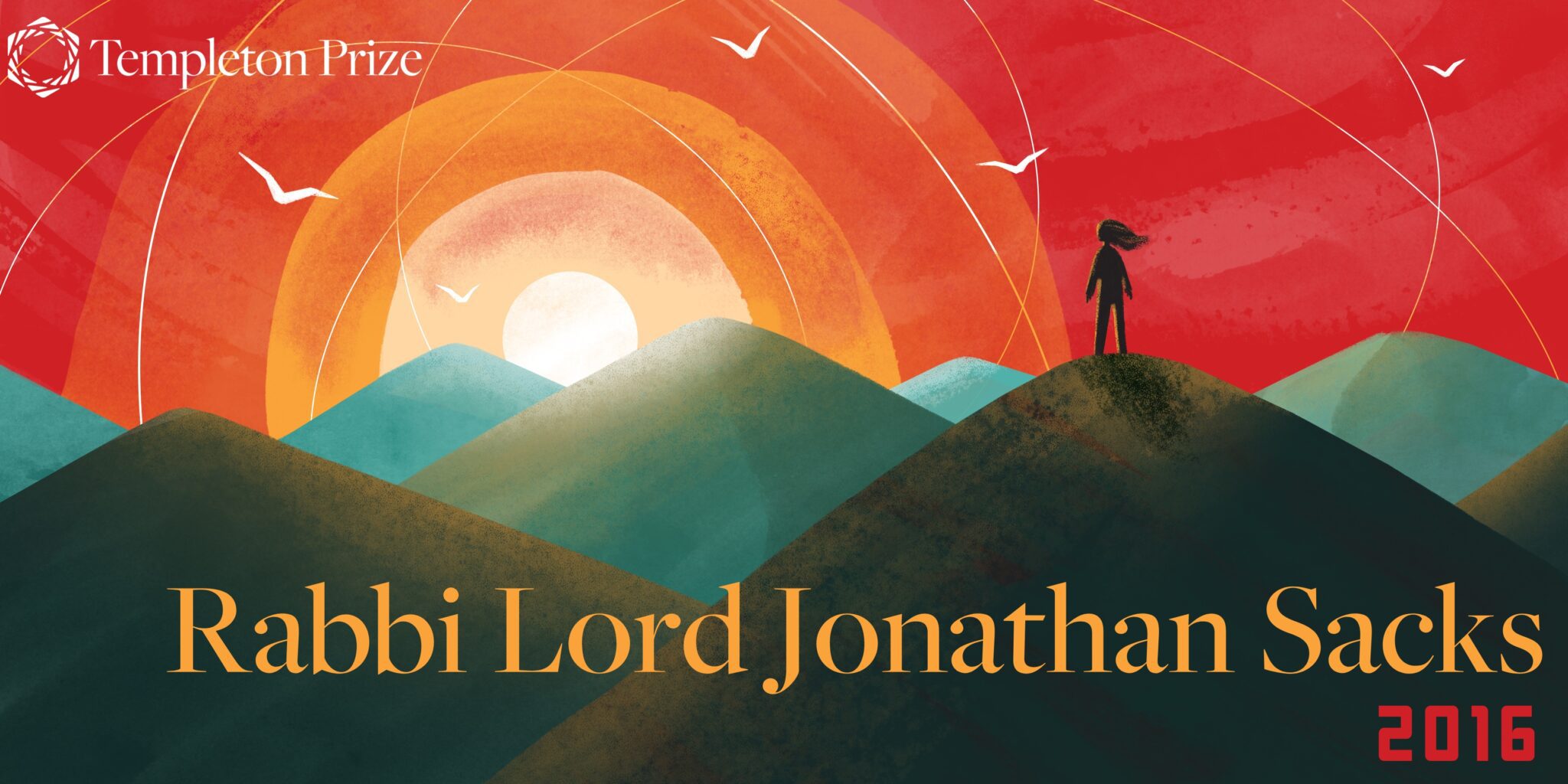In 1973, the first Templeton Prize was given to Mother Teresa. In 2023, we celebrate the 50th anniversary of this award. Over the next 52 weeks, we will highlight each of our laureates and reflect on their impact on the world. From humanitarians and saints to philosophers, theoretical physicists, and one king, the Templeton Prize has honored extraordinary people. Together, they have pushed the boundaries of our understanding of the deepest questions of the universe and humankind’s place and purpose within it, making this (we humbly think) the world’s most interesting prize.
As a revered religious leader, philosopher, theologian, and author, Rabbi Lord Jonathan Sacks spent a lifetime promoting tolerance and understanding. Central to his message was appreciation and respect of all faiths, which he encouraged through public conversation in mass media, popular lectures, and more than two dozen books, as well as through his position as the Chief Rabbi of the United Hebrew Congregations of the Commonwealth from 1991 to 2013.
He was then awarded the 2016 Templeton Prize for his tireless efforts to bring spiritual insight and messages of love to the public conversation, and for defending the compatibility of religion and science. These honors reflected not only his personal achievements, but also the broader acknowledgment of the importance of his message in building a more harmonious world.
Born on March 8, 1948 in London, Sacks grew up in a world that was still grappling with the aftermath of World War II. His parents instilled in him a devotion to education, Judaism, and wider society, which deeply influenced the trajectory of his career. Although he attended Christian school, about half of the students were Jewish, which led him to organize and lead morning assemblies for the Jewish students.
In 1969, Sacks was awarded a First Class Honors Degree in Moral Science (Philosophy) from Gonville & Caius College at the University of Cambridge. During his tenure at Cambridge, he embarked on a two-month visit to the United States where he met Rabbi Joseph Soloveitchik, Dean of the Rabbi Isaac Elchanan, Theological Seminary at Yeshiva University in New York, and the Lubavitcher Rebbe, Rabbi Menachem Mendel Schneerson. They encouraged Sacks to seek rabbinic ordination, which he received in 1976 from Jews’ College and Yeshiva Etz Chaim, London.
He became the Rabbi of the Golders Green Synagogue in London in 1978, a position he held with distinction for over a decade. During this time, his reputation as a dynamic and inspiring speaker flourished, attracting individuals from diverse backgrounds to his sermons and teachings.
In 1991, Sacks assumed the role of Chief Rabbi of the United Hebrew Congregations of the Commonwealth. His tenure, spanning 22 years, marked a transformative period for British Jewry. Sacks tirelessly worked to bridge gaps between faith communities, fostering dialogue and understanding in an increasingly multicultural society. His commitment to interfaith relations earned him respect well beyond the Jewish community.
Rabbi Sacks authored over 40 books, including his seminal work, Morality: Restoring the Common Good in Divided Times (2020). He was also a renowned public speaker and he traveled extensively, delivering lectures and engaging in conversations that transcended religious and cultural barriers.
In recognition of his contributions, Sacks was knighted in 2005 by Queen Elizabeth II and given a life peerage in the House of Lords in 2009.
Rabbi Sacks passed away on November 7, 2020 at the age of 72. His legacy is one of compassion, intellectual rigor, and an unwavering commitment to fostering a world where understanding and respect triumph over division.
“There is an alternative: to become inner-directed again. This means recovering the moral dimension that links our welfare to the welfare of others, making us collectively responsible for the common good. It means recovering the spiritual dimension that helps us tell the difference between the value of things and their price.”
—Rabbi Lord Jonathan Sacks
